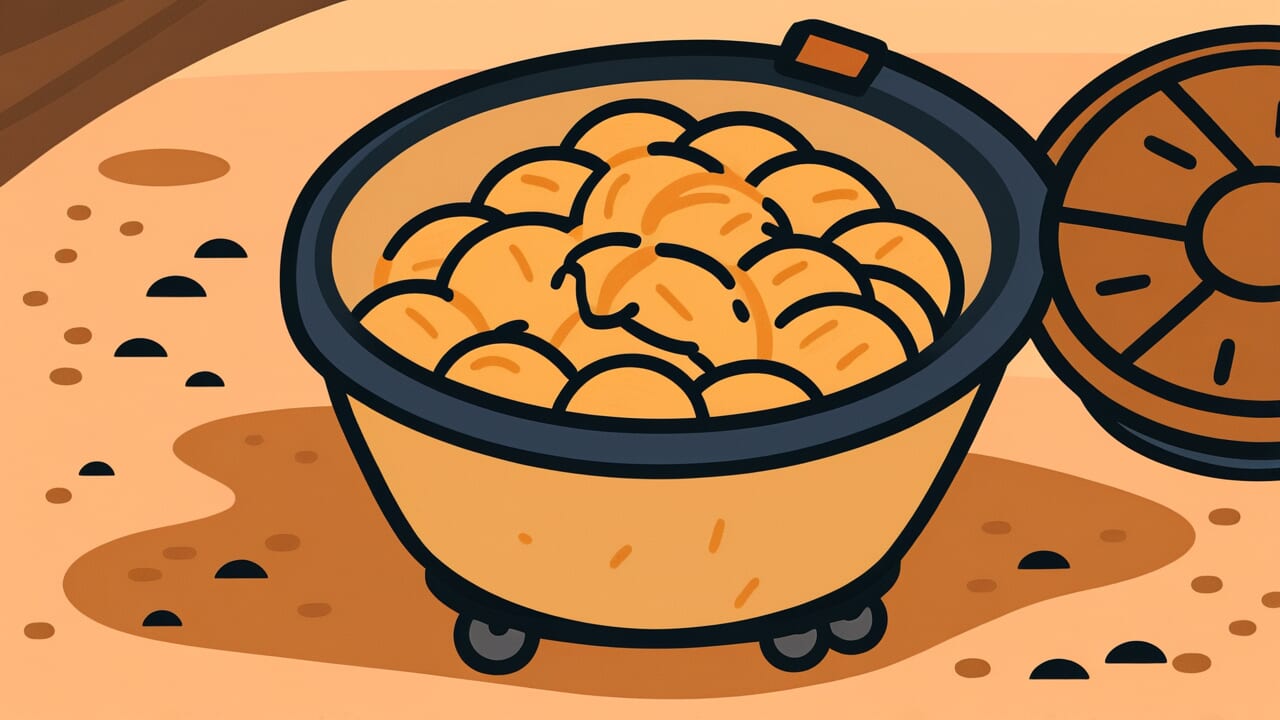How to Read “Rice in the chaff”
せいげのなかのもみ
Meaning of “Rice in the chaff”
“Rice in the chaff” is a proverb that means even among carefully selected things, some unsuitable or inferior items get mixed in.
It describes situations where undesirable things slip through even after a selection process.
The proverb points out that perfect selection is difficult. Even when you think you’ve chosen carefully, lower-quality items can sneak in.
This saying is used when you discover disappointing results after careful selection. It applies to hiring people, quality control, or reviewing information.
People use it to express surprise or disappointment. It also shows understanding that selection is inherently difficult.
Today, this expression reminds us that achieving perfection is hard no matter how careful we are.
It teaches that selection has limits. We need to stay alert and take additional measures even after choosing carefully.
Origin and Etymology
Origin section could not be generated.
Usage Examples
- We started the project with carefully selected members, but it was like rice in the chaff—several unmotivated people had slipped in
- We hired only students from top universities, but rice in the chaff, some didn’t even have basic manners, which surprised us
Universal Wisdom
“Rice in the chaff” teaches us about the eternal tension between our desire for perfection and the reality that we cannot achieve it.
We humans want to gather only good things. We want to surround ourselves with only high-quality items.
That’s why we select, examine, and choose carefully. But no matter how carefully we choose, undesirable things slip through.
This fact shows the limits of human judgment. It also reveals how complex the world really is.
What’s interesting is that this proverb doesn’t reject selection itself. Instead, it shows wisdom in accepting imperfection while recognizing the need for selection.
We shouldn’t stop selecting just because perfect selection is impossible. We should plan our next steps assuming imperfection.
This realistic attitude was the practical wisdom of our ancestors.
The proverb also hints at the need for tolerance in human society. Having people who don’t meet expectations is unavoidable.
We must respond based on this reality. The proverb warns against demanding too much perfection.
Through the everyday material of grain, it teaches us a profound insight.
When AI Hears This
Winnowing chaff to leave only rice grains is actually an advanced information separation system.
Mathematically, this process uses density differences for separation. This perfectly matches “signal and noise separation” in information theory.
Chaff and rice grains differ slightly in shape and weight. When you add vibration, these differences amplify and separation progresses.
This uses the same principle as modern Fourier transforms. Fourier transforms are mathematical methods that break complex waveforms into collections of simple waves.
Winnowing similarly uses “vibration as waves” to separate things with different physical properties.
For example, music apps that extract only vocals use the same mechanism based on frequency differences.
What’s more interesting is that this work happens repeatedly. You can’t separate perfectly in one try, so you winnow multiple times.
This has the same structure as gradient descent in machine learning. That’s the method of gradually reducing errors.
The strategy of not aiming for perfection at once but increasing purity through repetition is the optimal solution that minimizes computational cost.
Ancient farmers didn’t know mathematical formulas. But they intuitively used physical laws to achieve information separation.
This proverb contains mathematical wisdom that humanity accumulated through experience.
Lessons for Today
This proverb teaches modern people to balance accepting imperfection with never giving up.
We try to make the best choices in work and relationships. But no matter how carefully we choose, we sometimes face disappointing results.
When that happens, don’t completely reject yourself by thinking “my choice was wrong.” Instead, understand that “selection has limits.”
This recognition guides you in two directions. First, it frees you from perfectionism.
You can escape the pressure of trying to control everything perfectly. You become able to accept some uncertainty.
Second, it gives you an attitude of continuous improvement. Selection doesn’t end with one attempt.
You can stay alert afterward and flexibly handle problems when you find them.
In modern society, we see others’ “perfect” choices on social media. This can make us feel bad about our own imperfections.
But everyone experiences “rice in the chaff.” What matters is learning from it and applying that learning next time.
Even without perfection, your attitude of moving forward creates real value.



Comments